Search Results
Filters
Advanced Search
37 Results
-
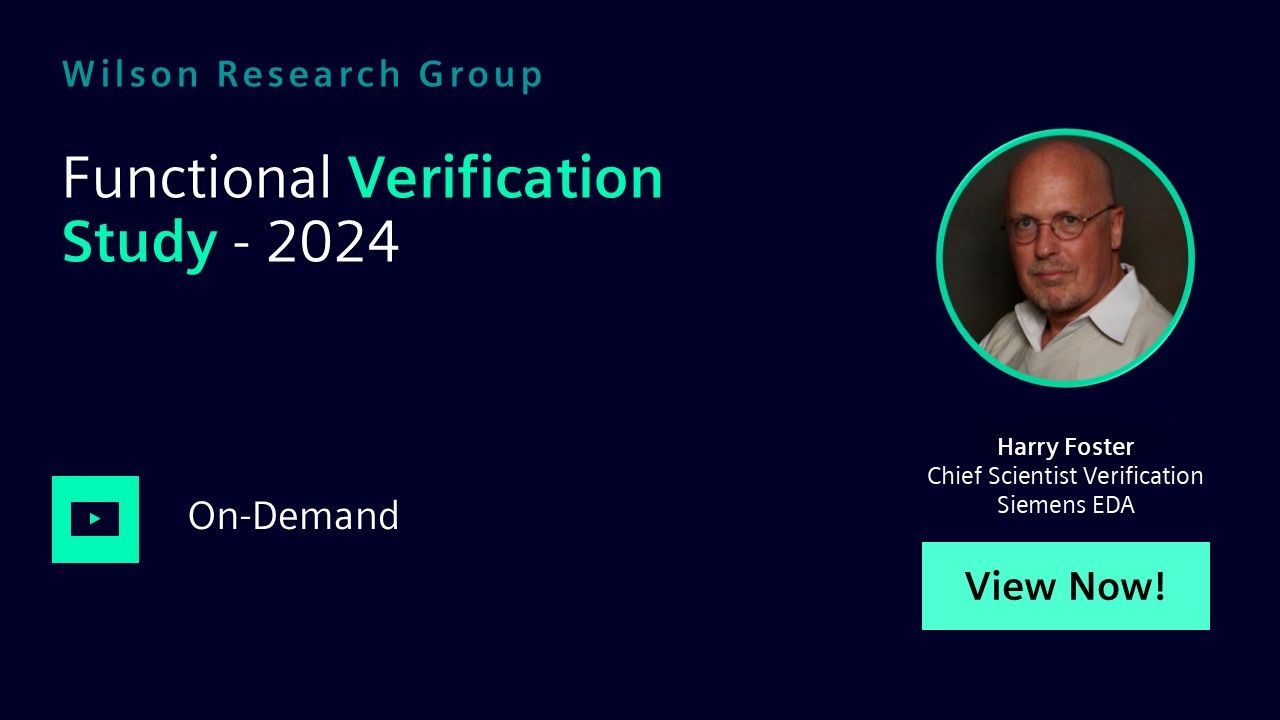
2024 Siemens EDA and Wilson Research Group Functional Verification Study: 7-Part Video Series
Track - Feb 17, 2025 by Harry Foster
The complexity of semiconductor design continues to grow, making functional verification a critical challenge. This 7-part video series presents key findings from the latest Siemens EDA and Wilson Research Group Functional Verification Study , covering both ASIC and FPGA trends.
-
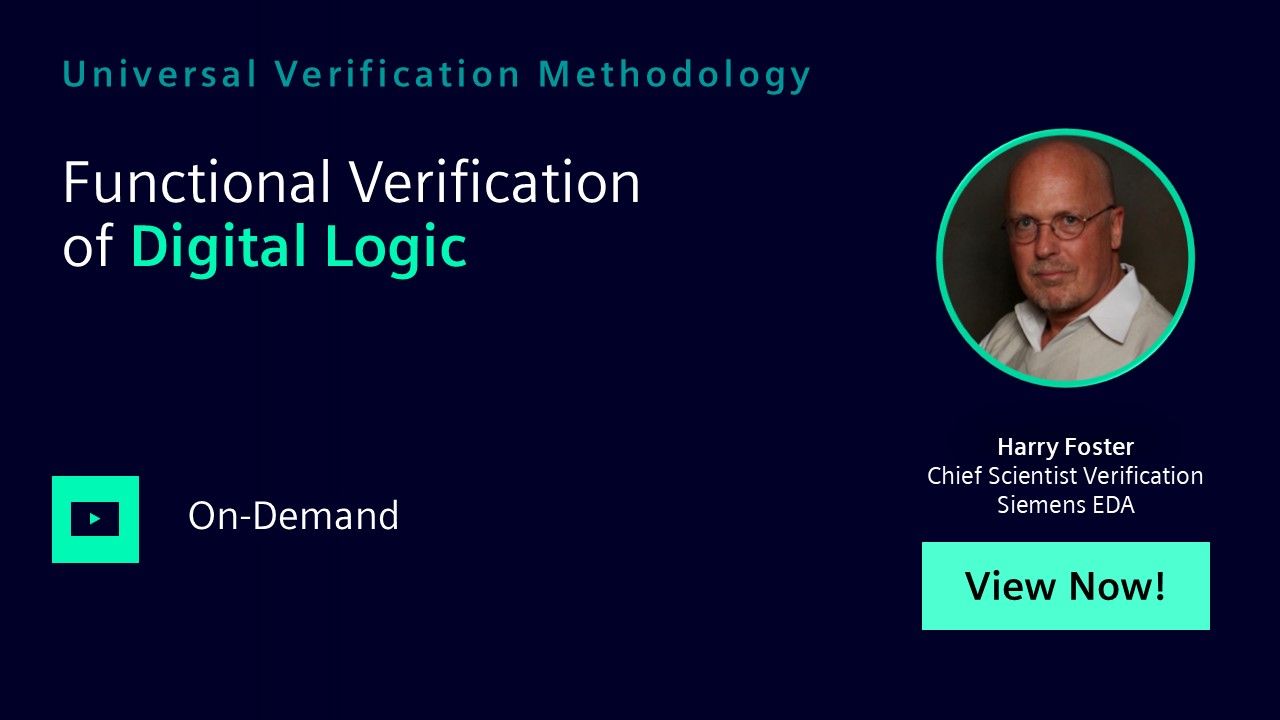
Functional Verification of Digital Logic
Track - Jan 10, 2025 by Harry Foster
Dive into the world of functional verification with our advanced master’s-level course, developed in collaboration with North Carolina State University. This comprehensive program covers all essential aspects of creating sophisticated constrained-random, coverage-driven testbenches using SystemVerilog and UVM.
-

Industry Data and Surveys
Track - Oct 24, 2022 by Harry Foster
Every two years, Siemens EDA commissions Wilson Research Group to conduct a broad, vendor-independent survey of design verification practices around the world. Results of the functional verification study demonstrate an ongoing convergence of design and verification practices toward a common methodology.
-
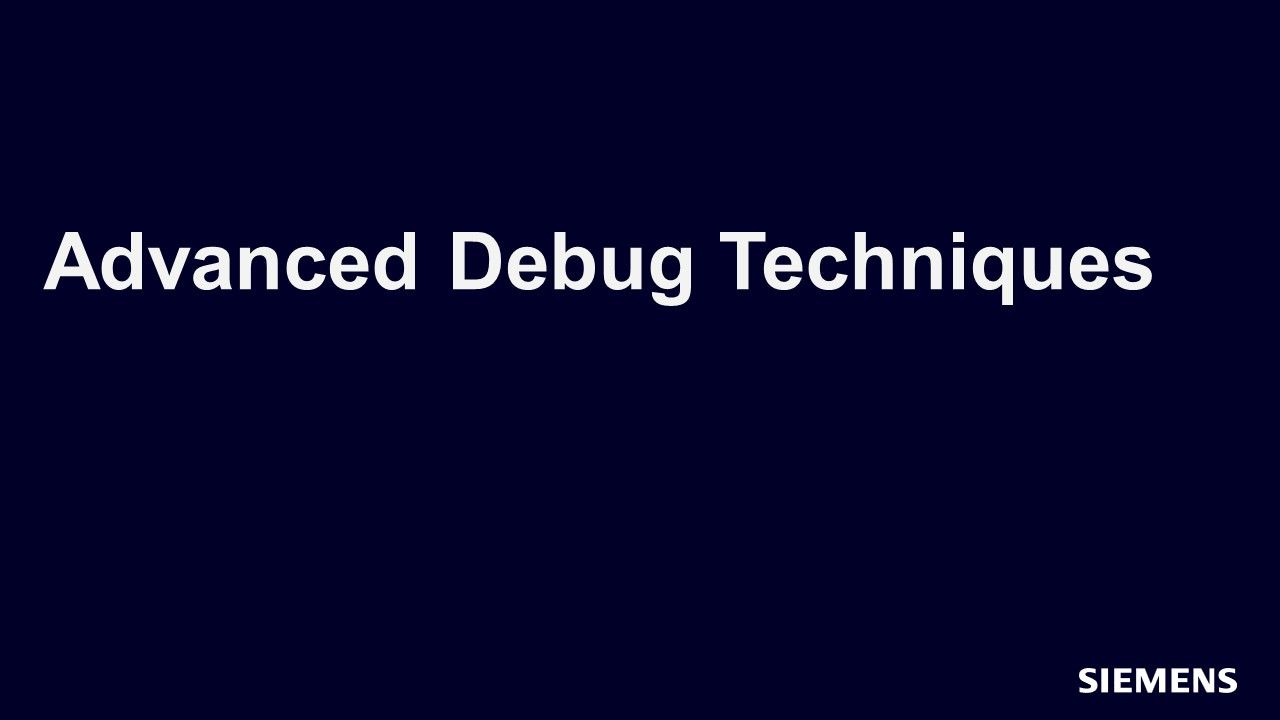
Advanced Debug Techniques
Track - May 23, 2022 by Rich Edelman
In this track, you will learn how the Visualizer Debug Environment can debug and verify your complex SoCs and FPGAs.
-
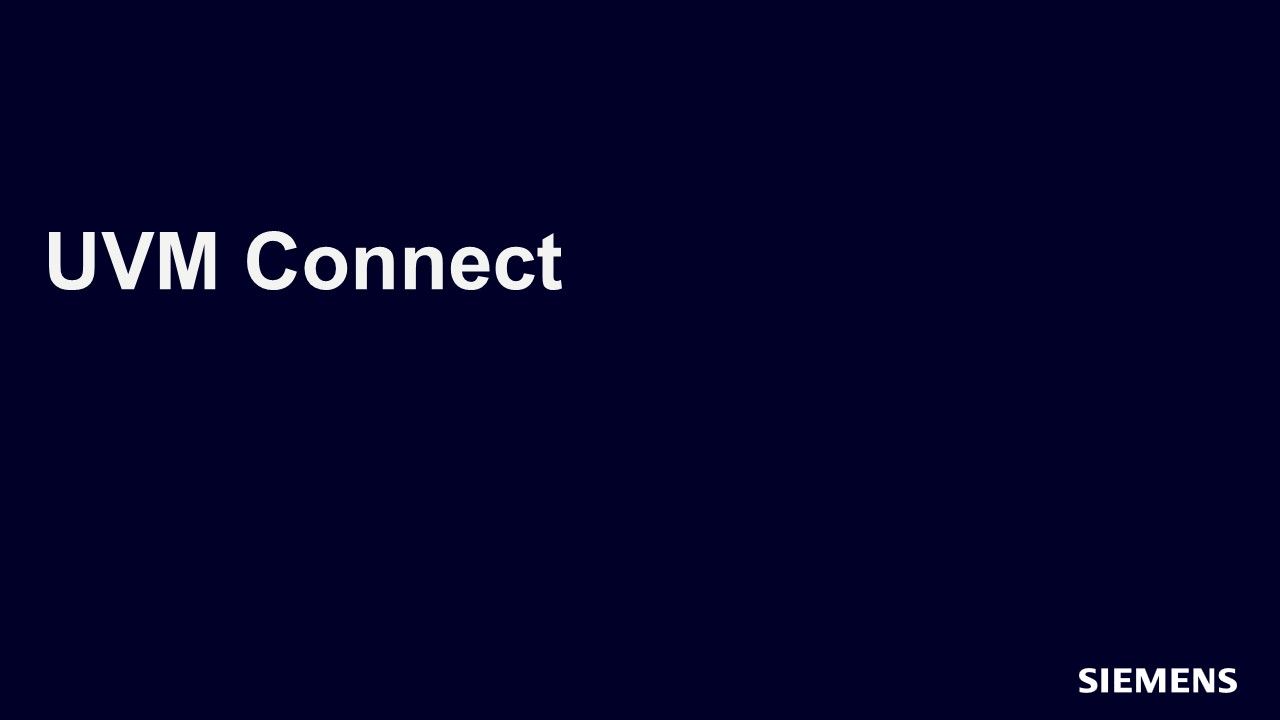
UVM Connect
Track - May 23, 2022 by Adam Erickson
UVM Connect will demonstrate how to reuse your SystemC architectural models and/or reuse SystemVerilog UVM agents to verify models in SystemC.
-
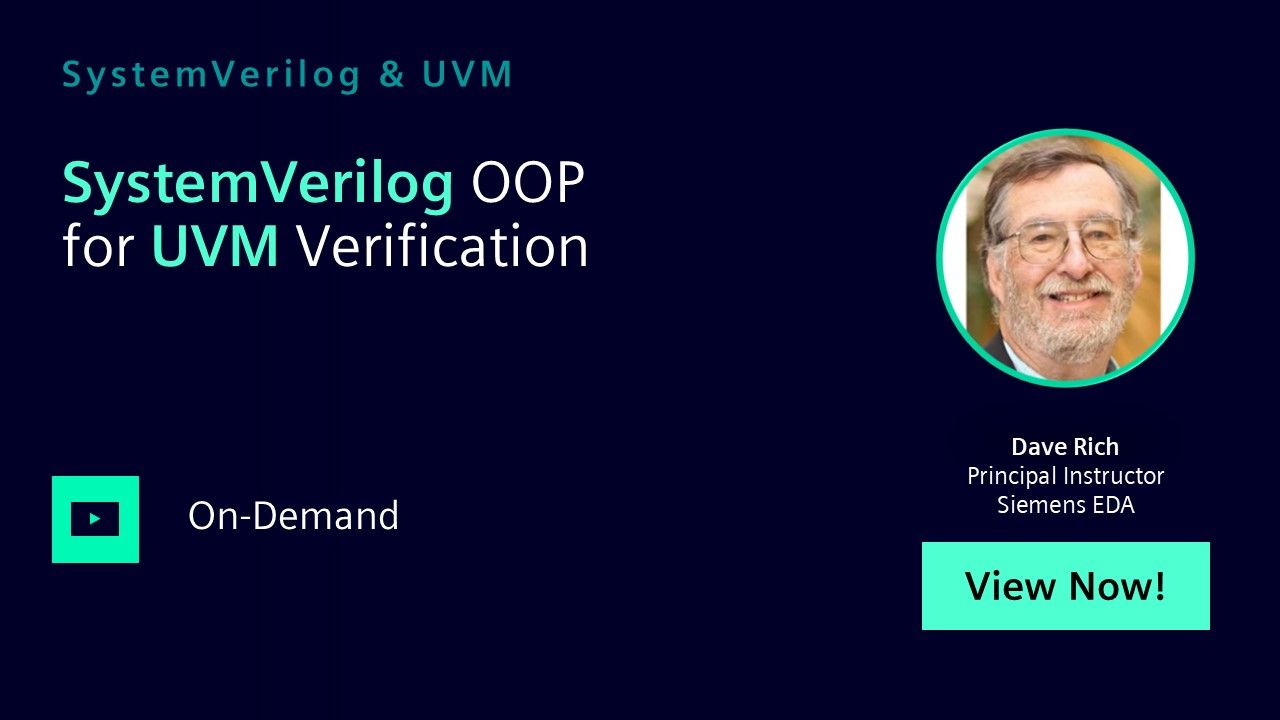
SystemVerilog OOP for UVM Verification
Track - May 23, 2022 by Dave Rich
The SystemVerilog OOP for UVM Verification is aimed at introducing the OOP features in SystemVerilog most commonly used by the UVM in the simplest form.
-
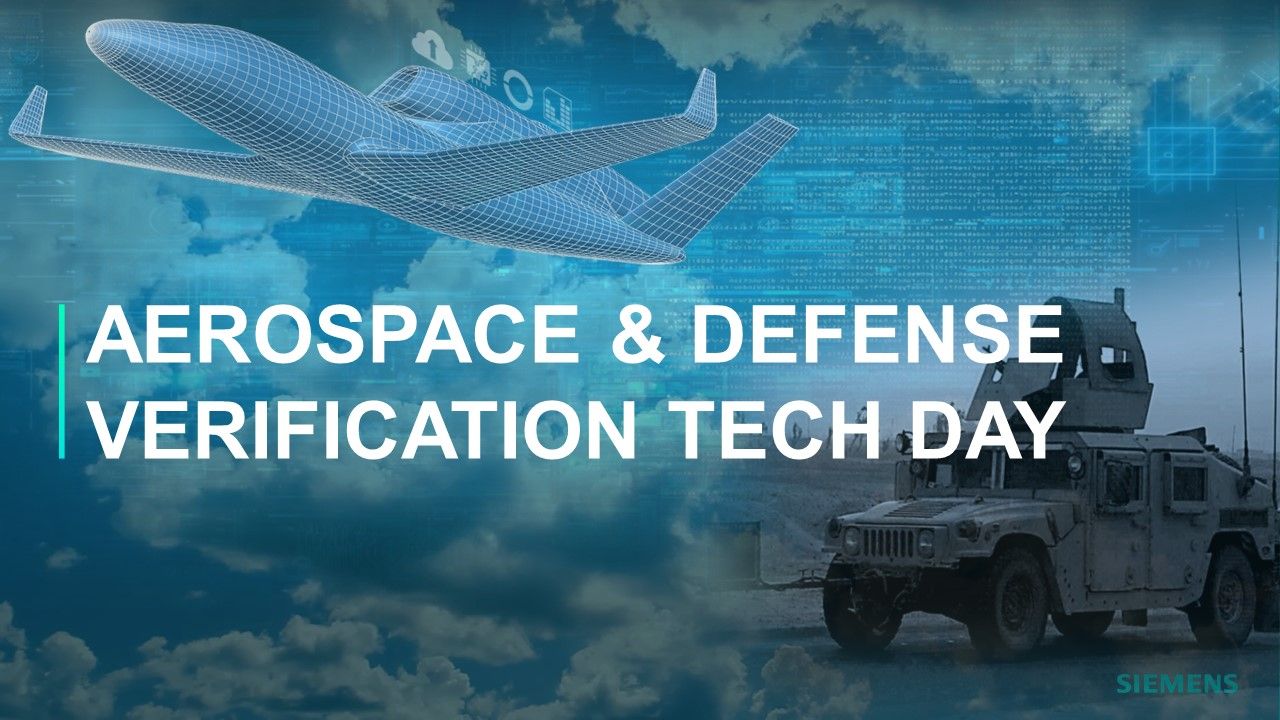
Aerospace and Defense Verification Tech Day
Track - May 11, 2022 by Joe Hupcey
Join Siemens EDA as we share an engineering update on the methodologies, technologies, and solutions for the ASIC, FPGA, and systems verification challenges unique to today’s Aerospace and Defense industry. Design and verification engineers and managers serving the Aerospace and Defense industry won’t want to miss this deep dive into the future of digital verification.
-
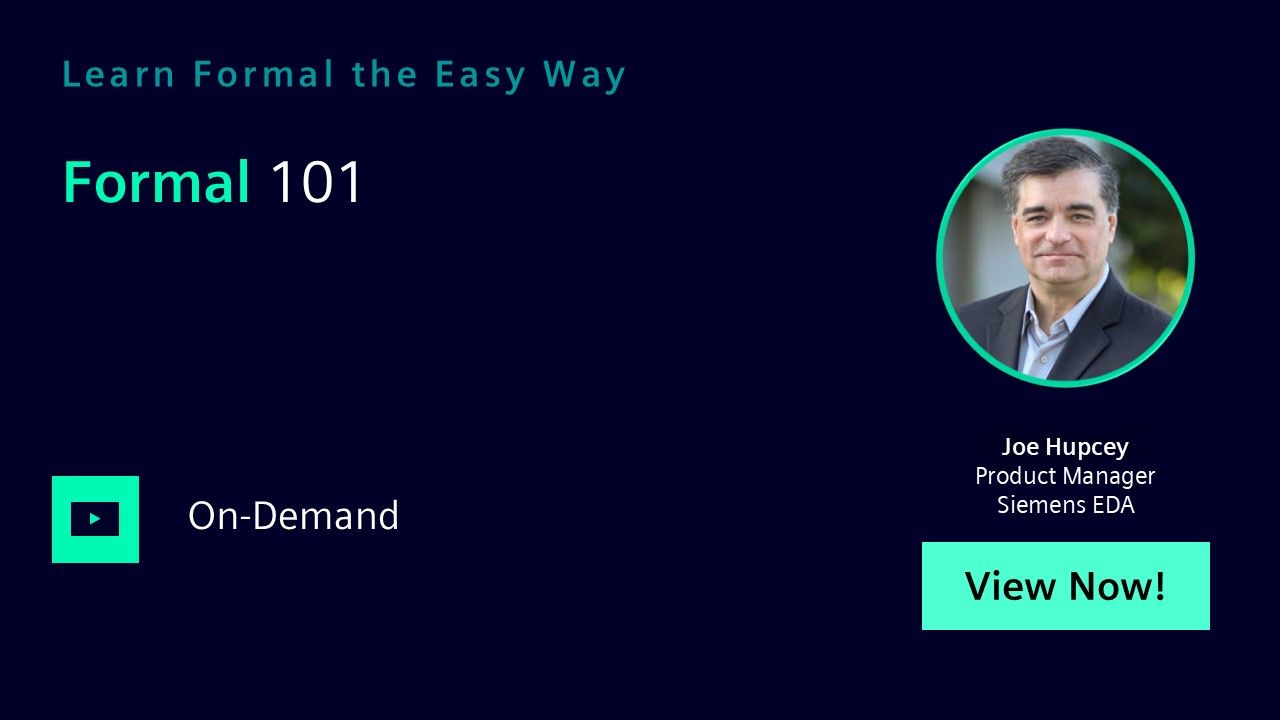
Formal 101: Learn Formal the Easy Way
Track - Mar 29, 2022 by Joe Hupcey
Everyone wants exhaustive verification, and thus people want to learn more about formal property checking flows and tools. But they either don’t where to start, or they are afraid that the learning curve will be protracted and confusing.
-
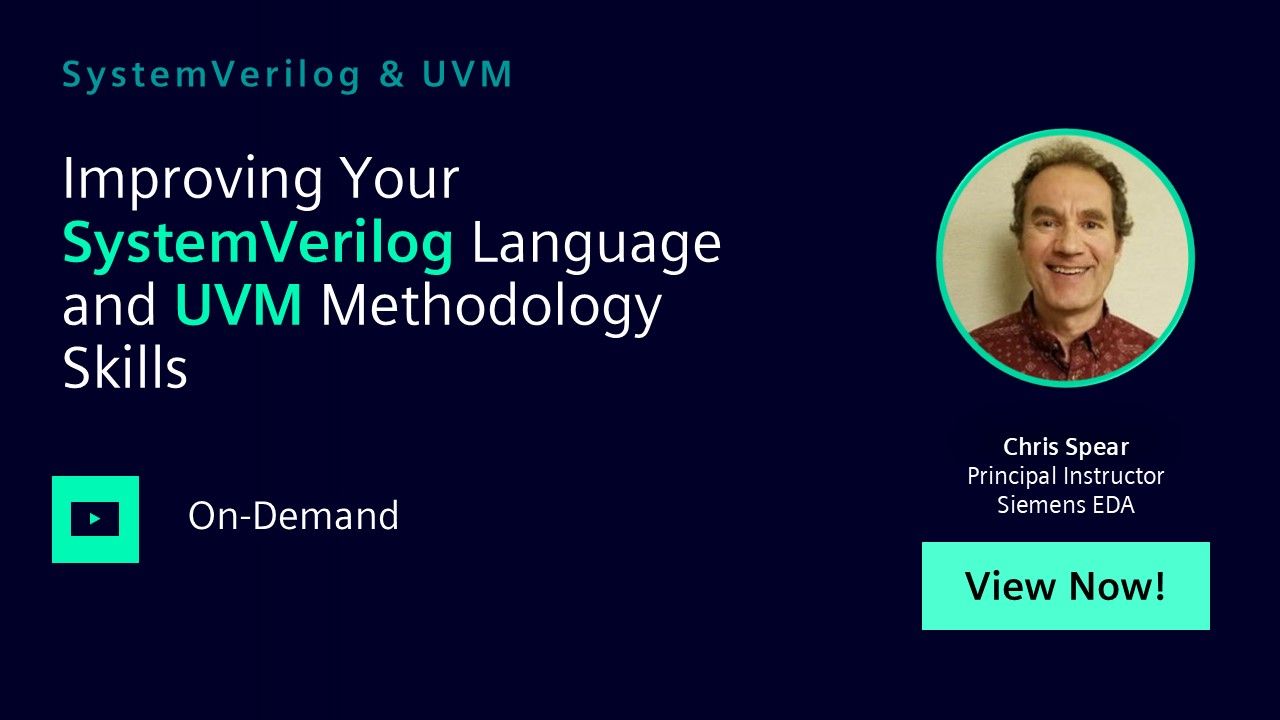
Improving Your SystemVerilog Language and UVM Methodology Skills
Track - Oct 27, 2021 by Chris Spear
If you are building complex testbenches with SystemVerilog and UVM, this series is for you. The series dives into many aspects of these two areas, to give you deeper insight about how to apply the language and methodology on your projects. Whether you are new to SystemVerilog and UVM, or have been writing code for many years, take a fresh look at the fundamentals and learn some new ideas and approaches.
-
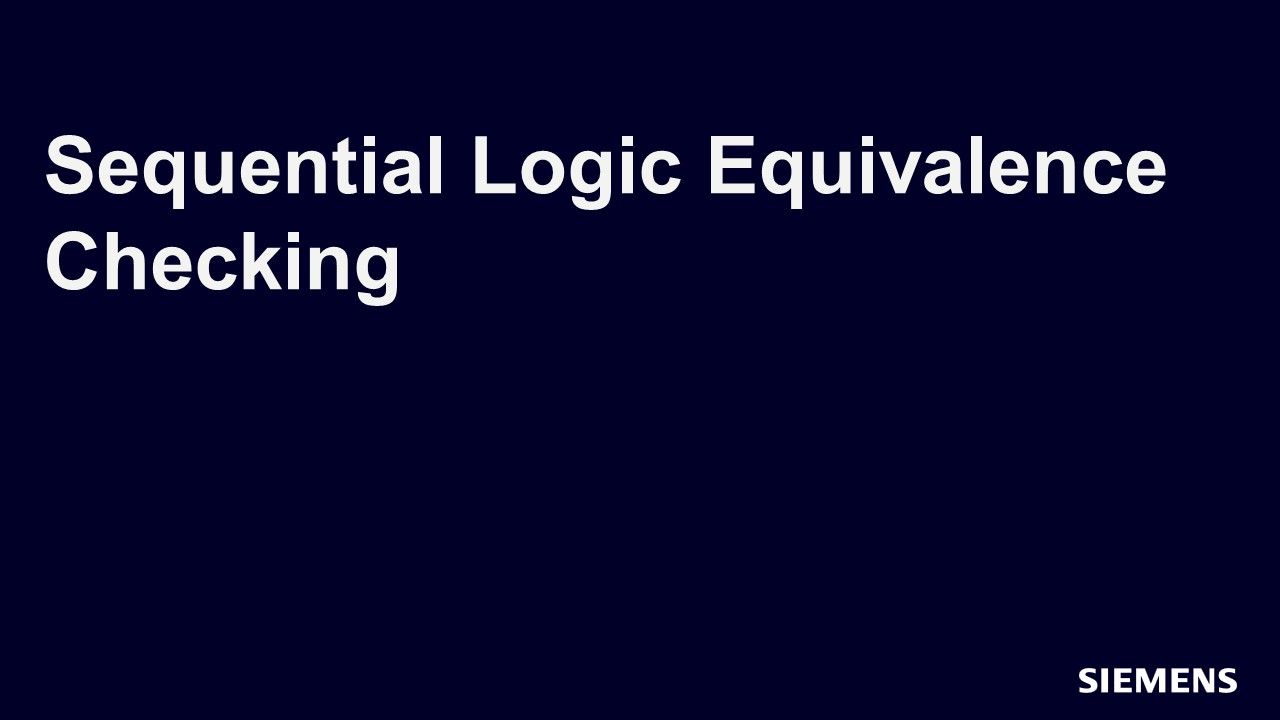
Sequential Logic Equivalence Checking
Track - Jul 06, 2021 by Jin Hou
In this track, you will be introduced to the concept of sequential logic equivalence checking and its common applications. You will also learn how to start with Questa® SLEC to verify design optimization, bug fix/ECOs, low power clock gating logic, and safety mechanisms.
-

UVM Basics
Track - May 28, 2021 by Tom Fitzpatrick
UVM Basics will raise a user's level of UVM knowledge to the point where users have sufficient confidence in their own technical understanding that it becomes less of a barrier to adoption.
-
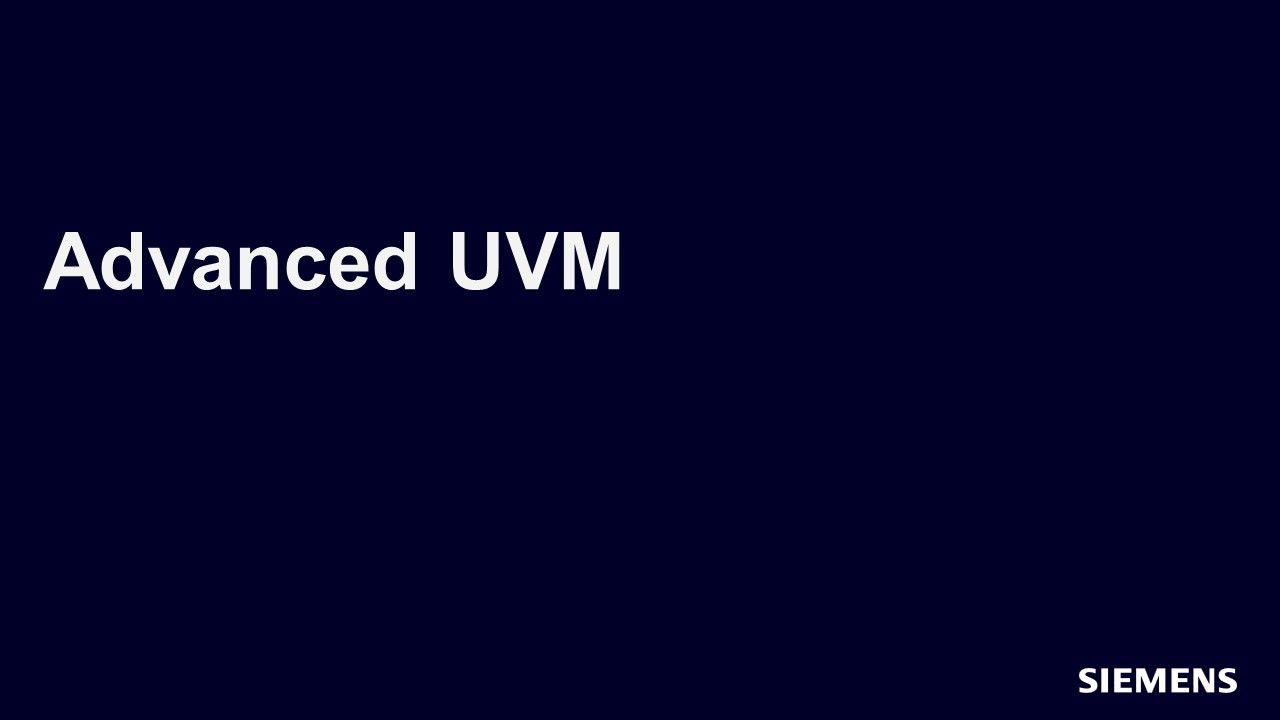
Advanced UVM
Track - May 25, 2021 by Tom Fitzpatrick
Advanced UVM builds upon the concepts covered in Basic UVM to take your UVM understanding to the next level.
-

Introduction to ISO 26262
Track - Apr 20, 2020 by Jake Wiltgen
The purpose of this track is to provide engineers and managers with a basic understanding of the key concepts of ISO 26262. This includes information on the scope of the standard, how the standard addresses the broader automotive supply chain, and key requirements defined at each phase of the product lifecycle.
-
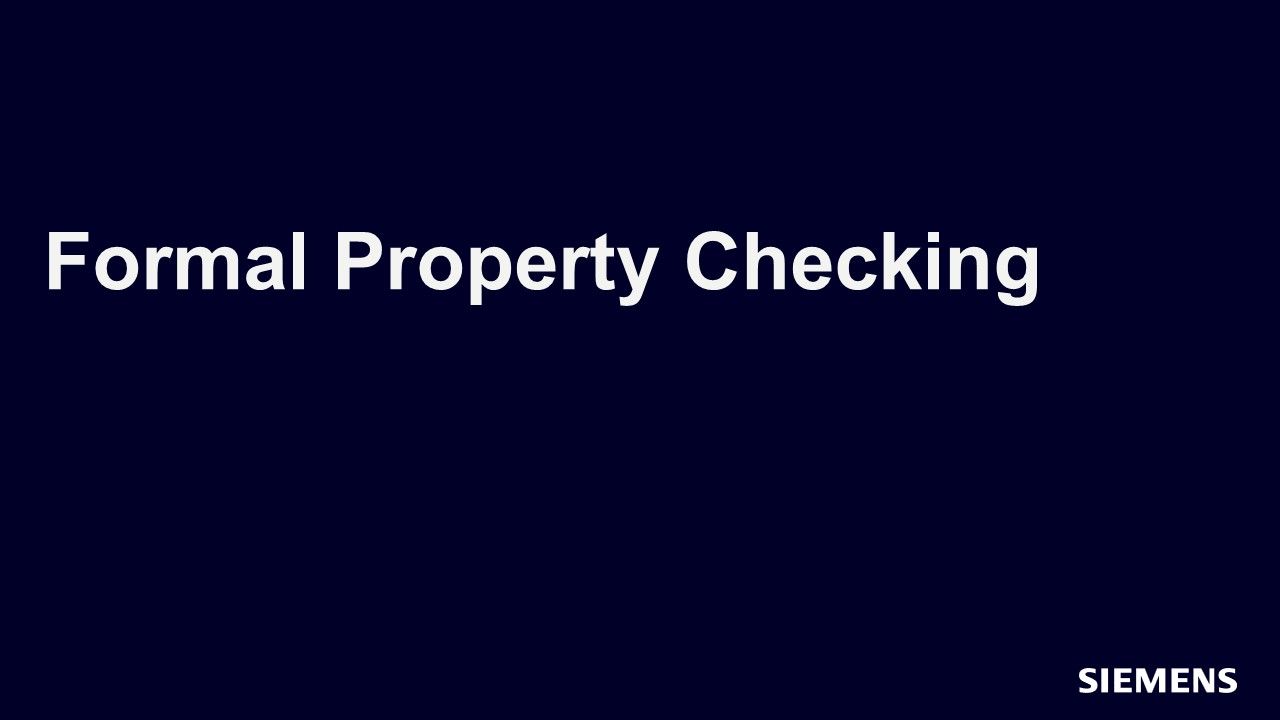
Formal Property Checking
Track - Oct 14, 2019 by Joe Hupcey
Questa Property Checking (PropCheck) supports general assertion-based formal verification to ensure that the design meets its specific functional requirements.
-
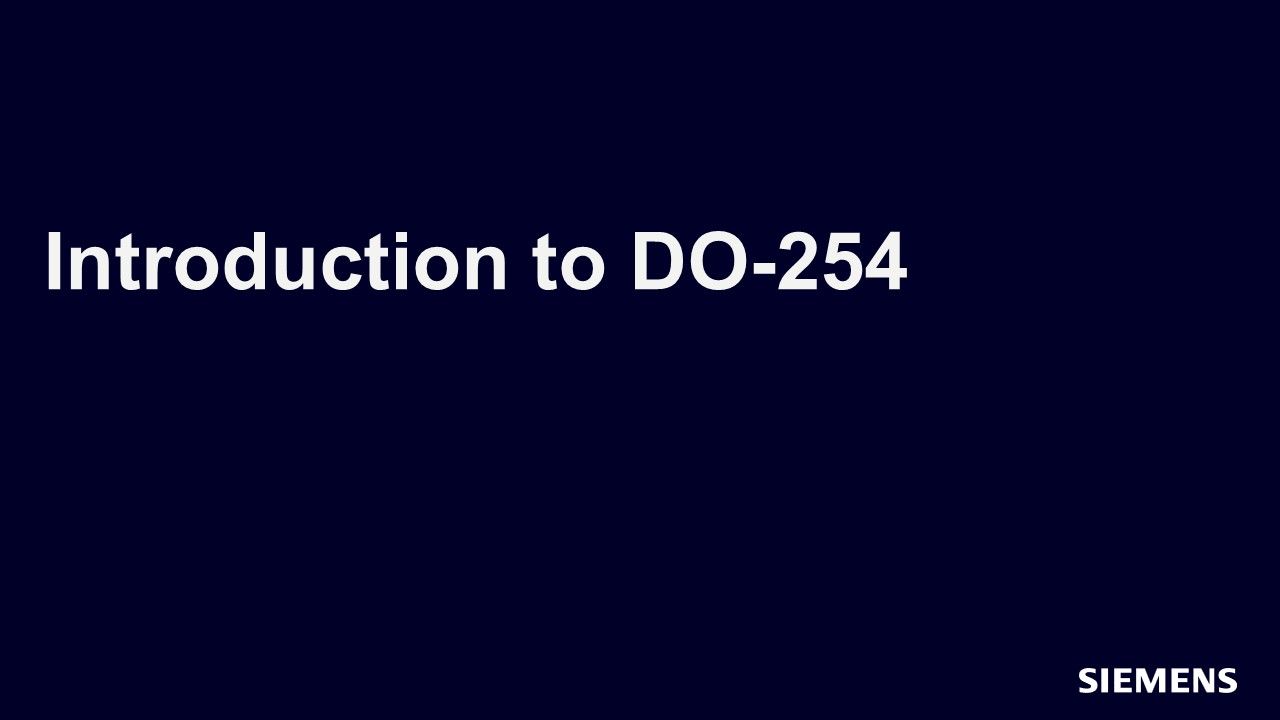
Introduction to DO-254
Track - Oct 04, 2018 by Byron Brinson
The purpose of this track is to provide engineers or technical leads with basic understanding of DO-254 key concepts. DO-254 has been around for over 15 years and has been applied almost exclusively in the commercial Aerospace industry. Because it has been focused on a subset of the electronic hardware market, many engineers and companies have little to no knowledge of DO-254.
-
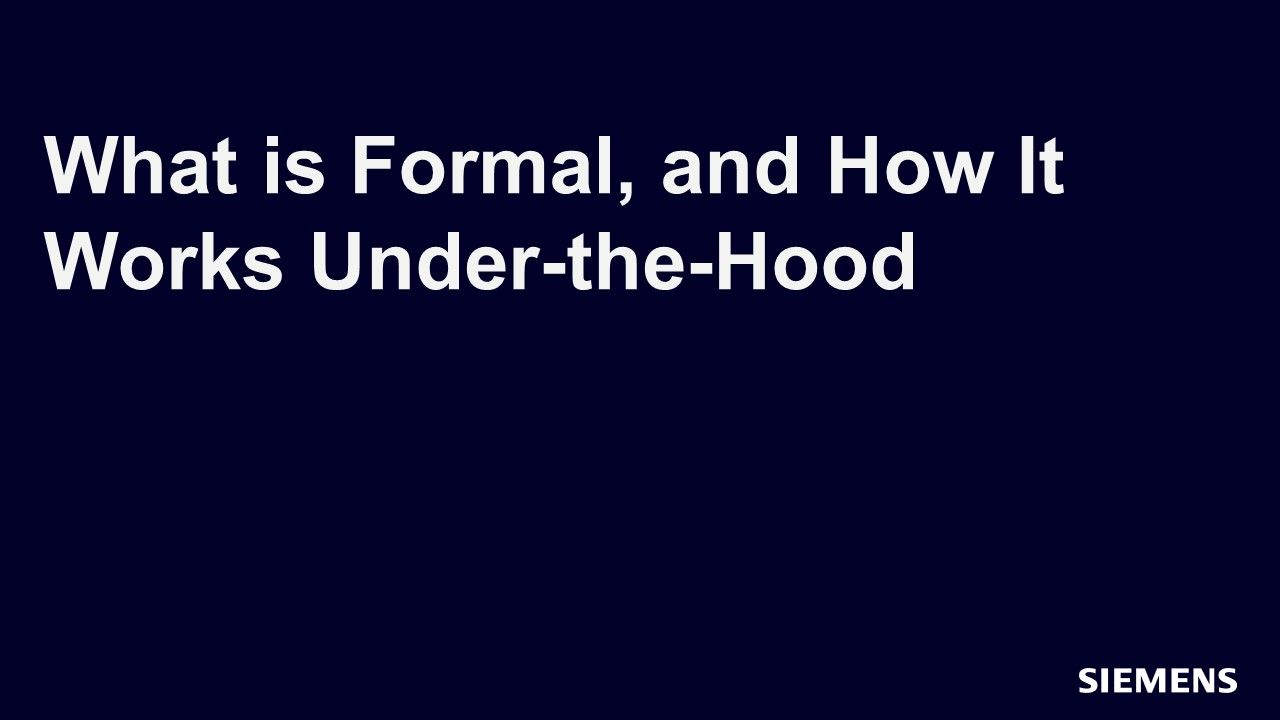
What is Formal, and How It Works Under-the-Hood
Track - May 14, 2018 by Doug Smith
It’s common knowledge that formal property verification – “formal”, for short – delivers exhaustive results. In a nutshell, formal tools statically analyze a design’s behavior with respect to a given set of properties, exhaustively exploring all possible input sequences in a breadth-first search manner to uncover design errors that would otherwise be missed.
-
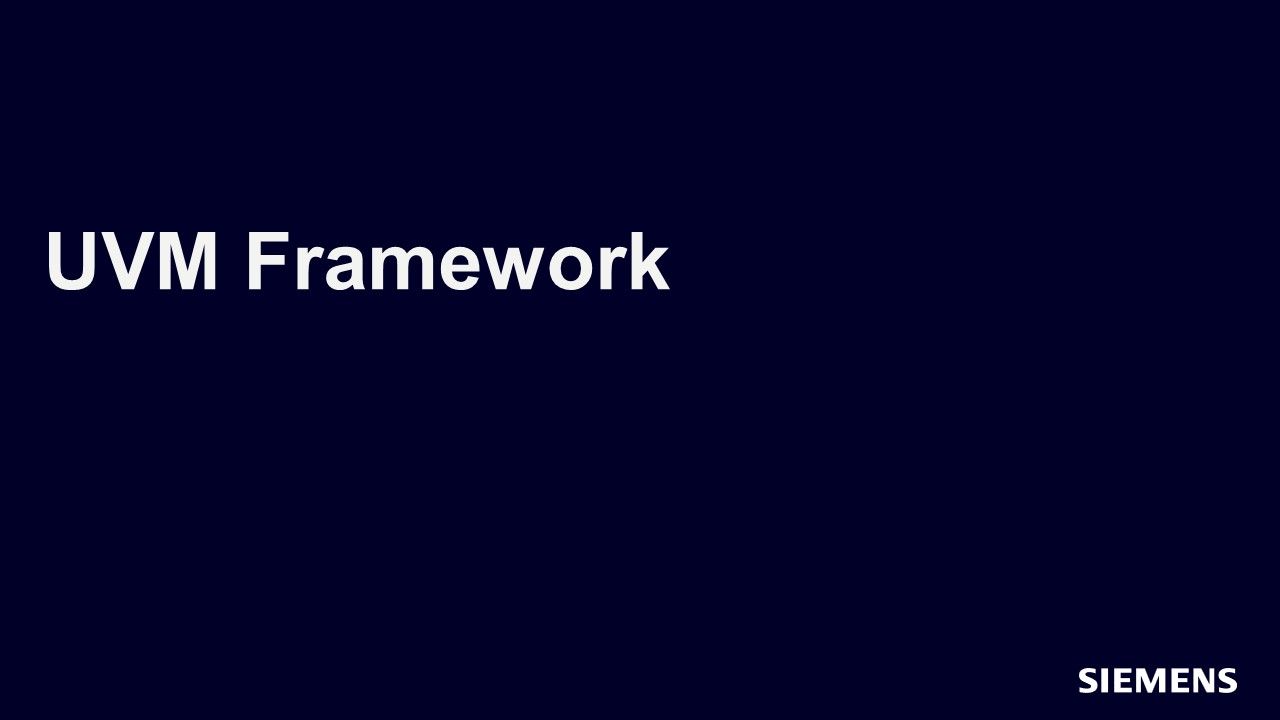
UVM Framework
Track - Feb 26, 2018 by Bob Oden
In this track you will learn more about UVM Framework and how it that provides a reusable UVM methodology and code generator for rapid testbench generation.
-
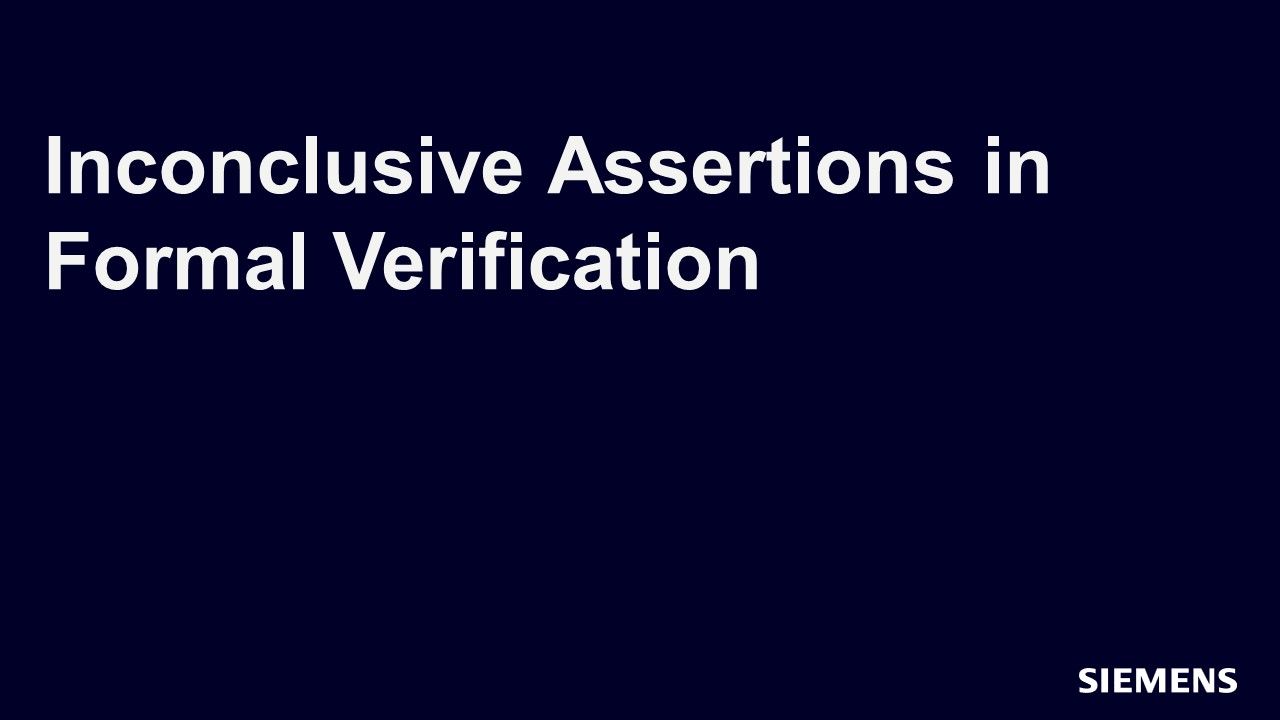
Handling Inconclusive Assertions in Formal Verification
Track - Oct 10, 2017 by Jin Hou
In this track, you will be introduced to techniques to help formal tools solve inconclusive assertions. You will also learn tool options to help convergence, introduce techniques for reducing assertion and design complexity.
-
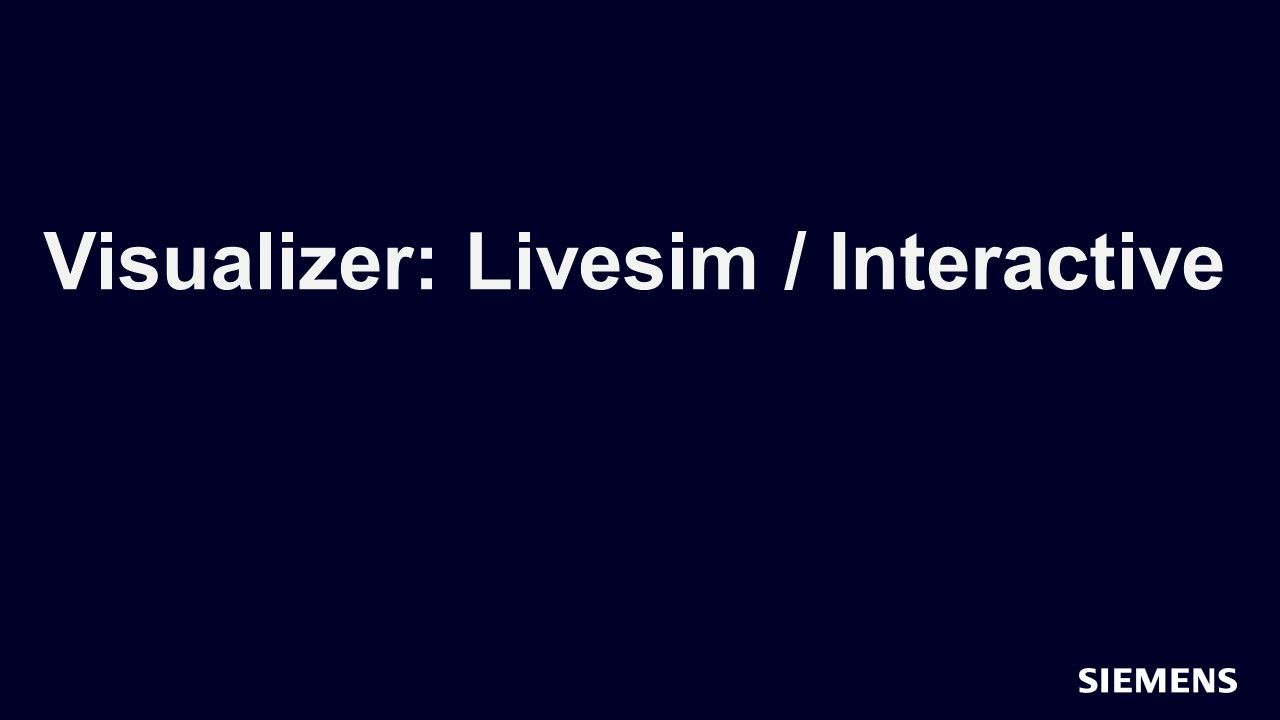
Visualizer: Livesim / Interactive
Track - Sep 05, 2017 by Tom Kiley
In this track, you will learn how Visualizer Debug Environment provides a full set of synchronized views that analyze waveforms, source code, connectivity and more for Verilog, SystemVerilog, VHDL and SystemC. In addition to being very intuitive and easy to use, Visualizer has several powerful features that improve debug productivity for SystemVerilog/UVM, transaction-level, RTL, gate-level and low-power design and verification.
-
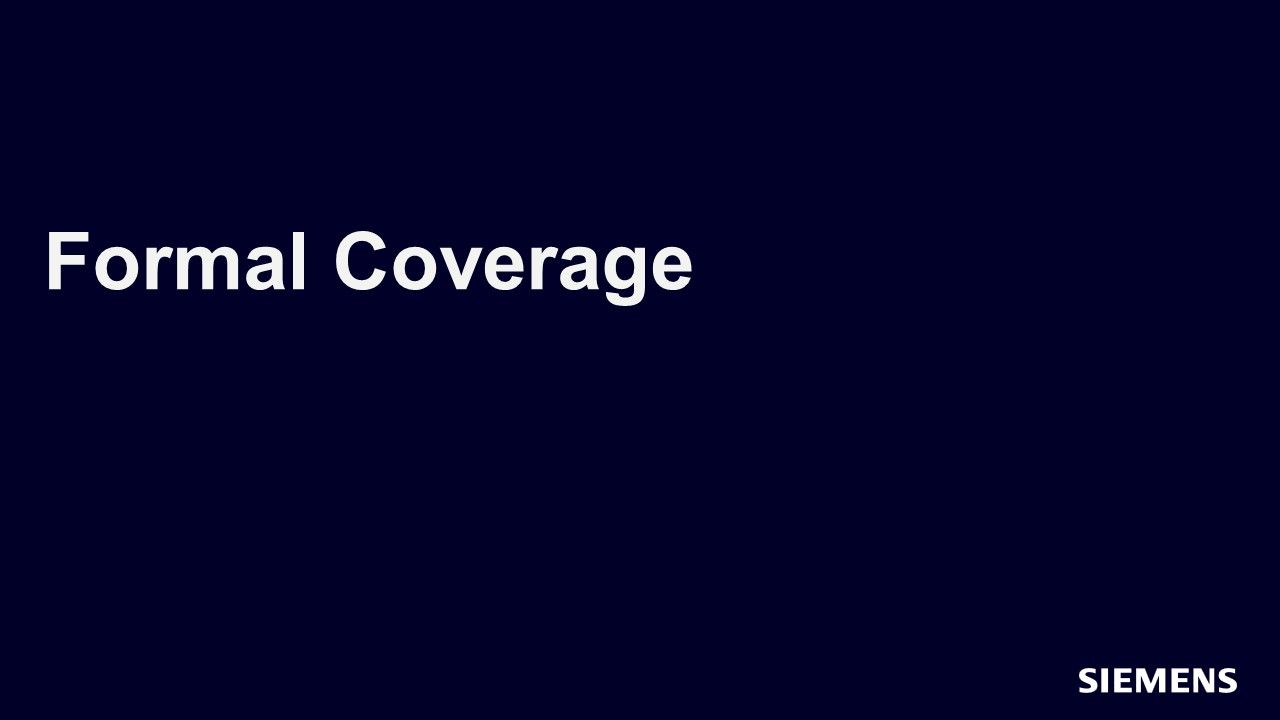
Formal Coverage
Track - Aug 21, 2017 by Mark Eslinger
Formal coverage is a hot topic these days. Simulation has a number of metrics for helping determine when verification is done. These include code coverage, assertions coverage, transaction coverage, and functional coverage to name a few.
-
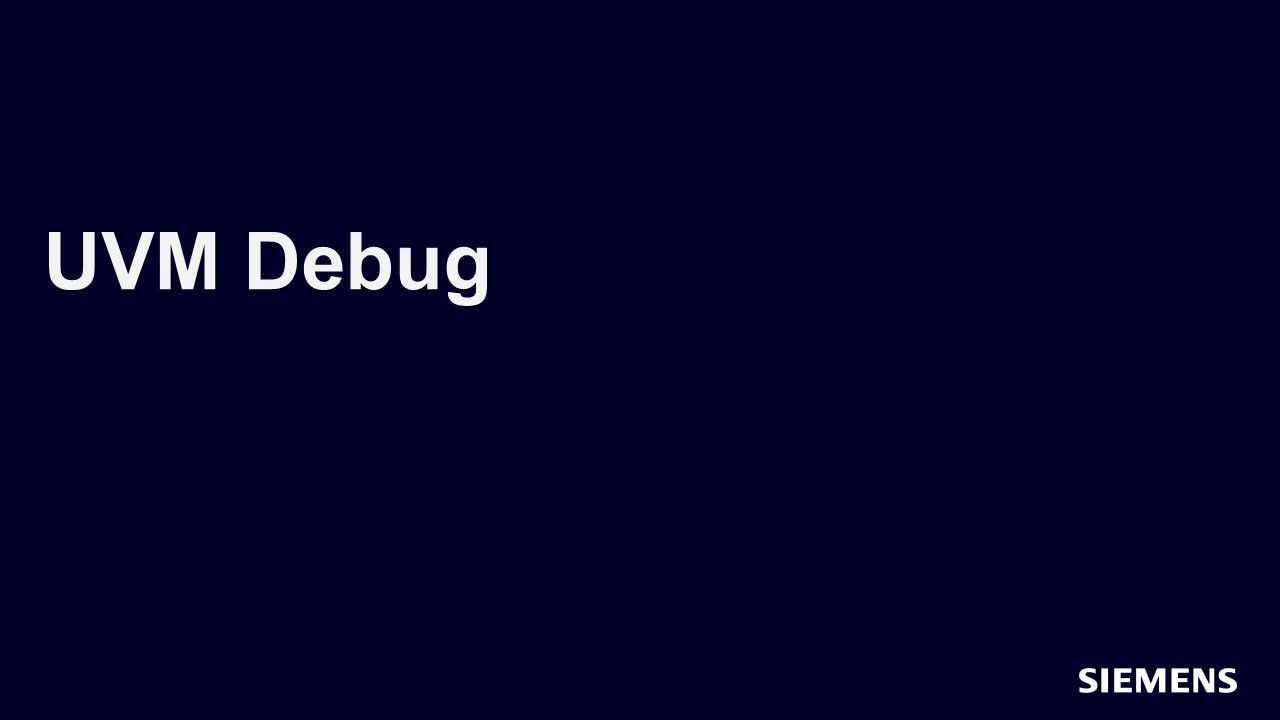
UVM Debug
Track - Jun 14, 2017 by Tom Kiley
In this track, we examine common UVM debug issues, and provide a systematic set of recommendations to effectively address them.
-
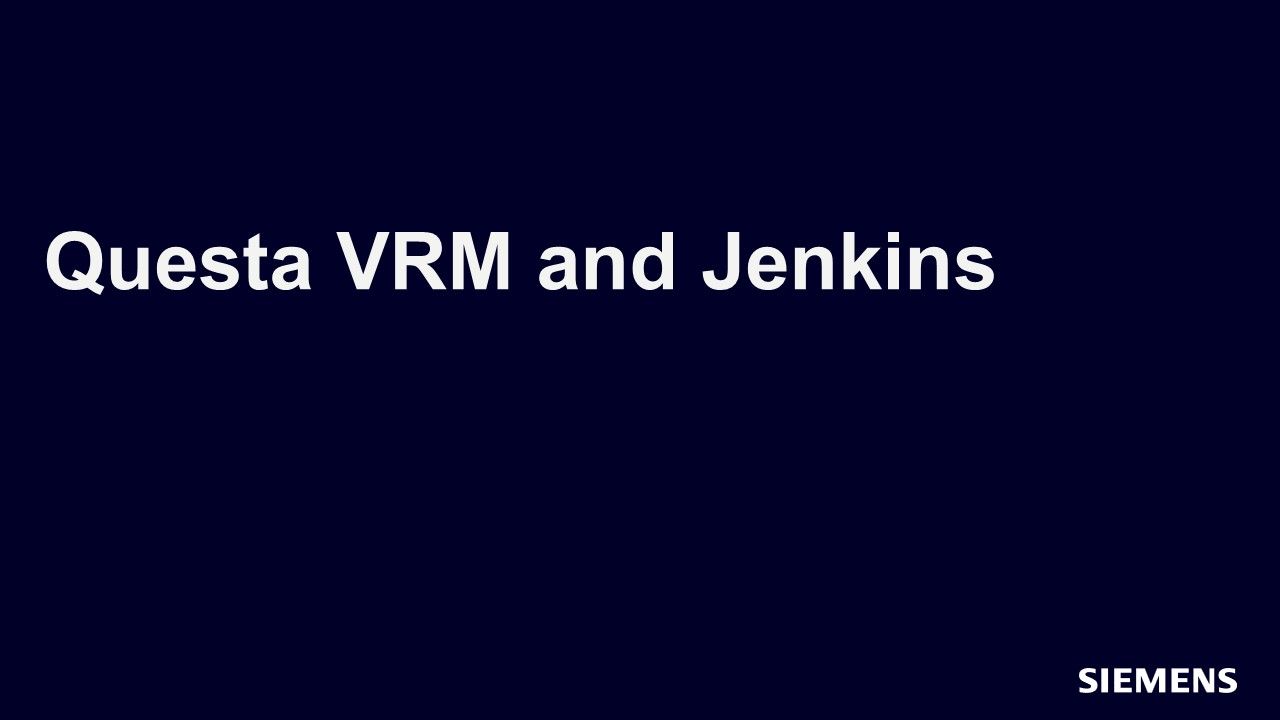
Questa VRM and Jenkins
Track - Jan 10, 2017 by Darron May
This track will define terms, logically divide up the verification effort, and lay the foundation for actual verification planning and management on a real project.
-
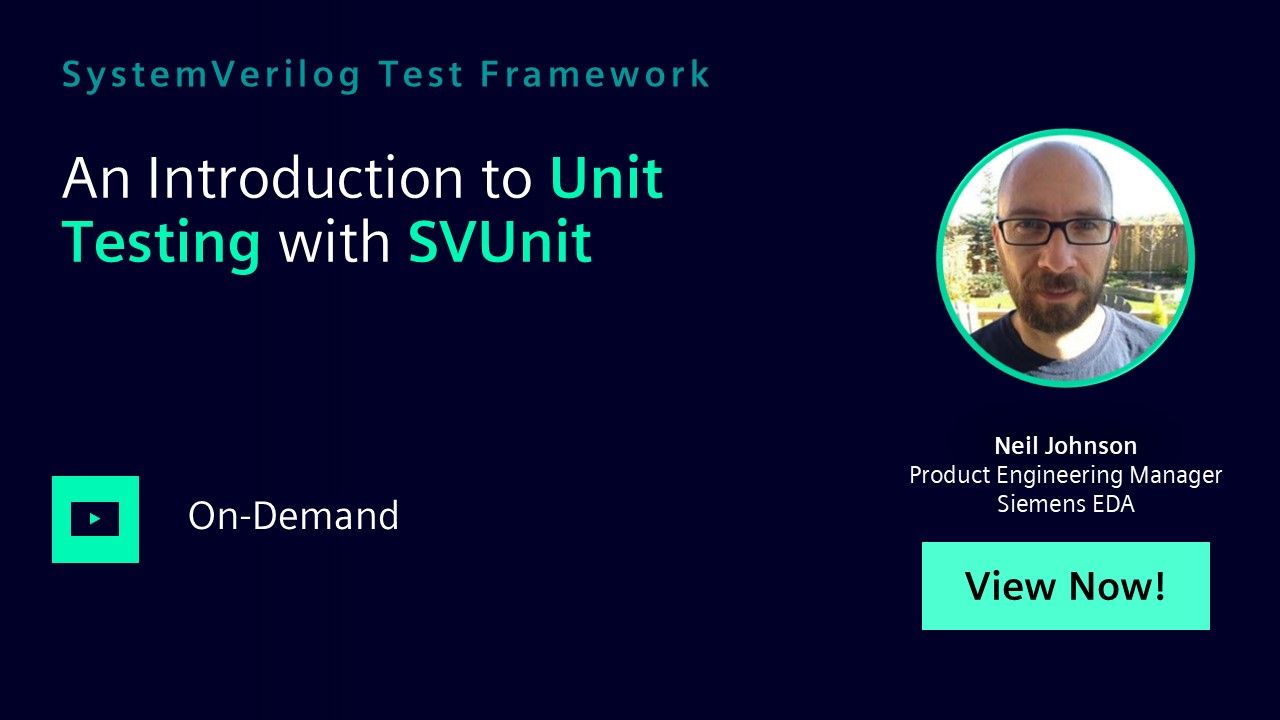
An Introduction to Unit Testing with SVUnit
Track - Feb 22, 2016 by Neil Johnson
SVUnit is an open-source test framework for ASIC and FPGA developers writing Verilog/SystemVerilog code. SVUnit is the only SystemVerilog test framework suited for both design and verification engineers.
-
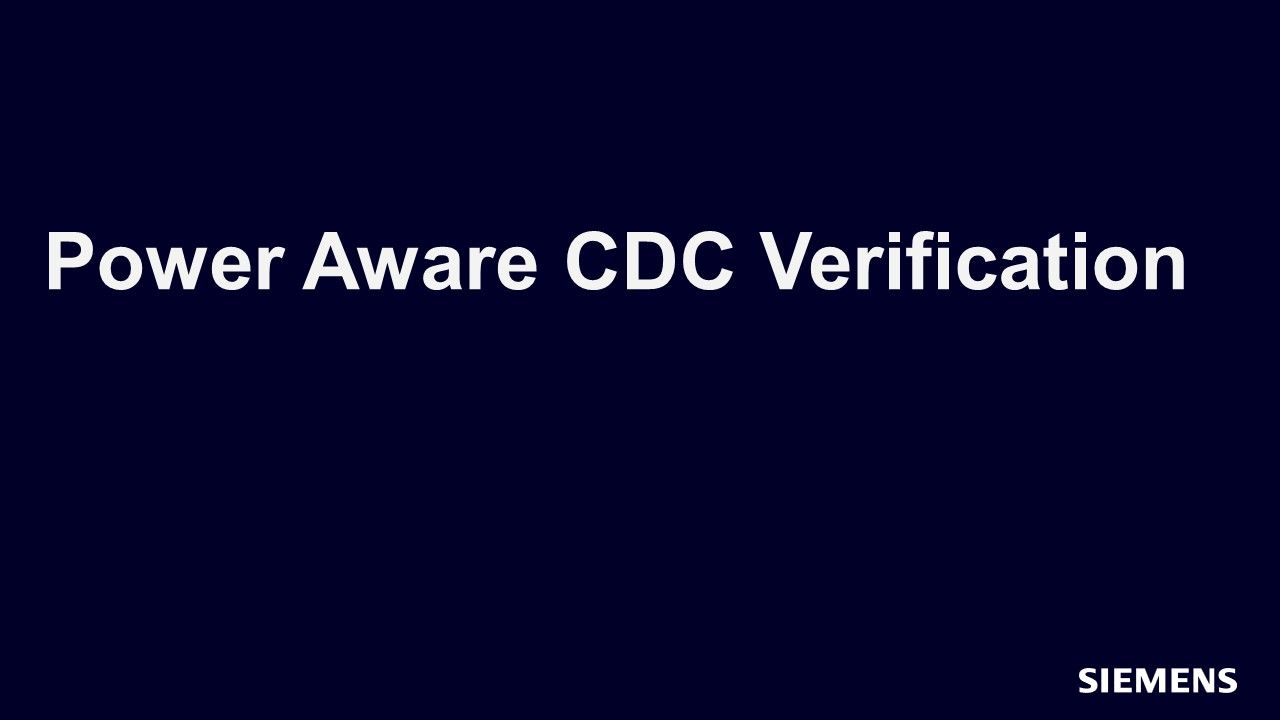
Power Aware CDC Verification
Track - Jun 30, 2015 by Kurt Takara
In this track, you will learn the low power CDC methodology by discussing the low power CDC challenges, describing the UPF-related power logic structures relevant to CDC analysis, and explaining a low power CDC verification methodology.
-
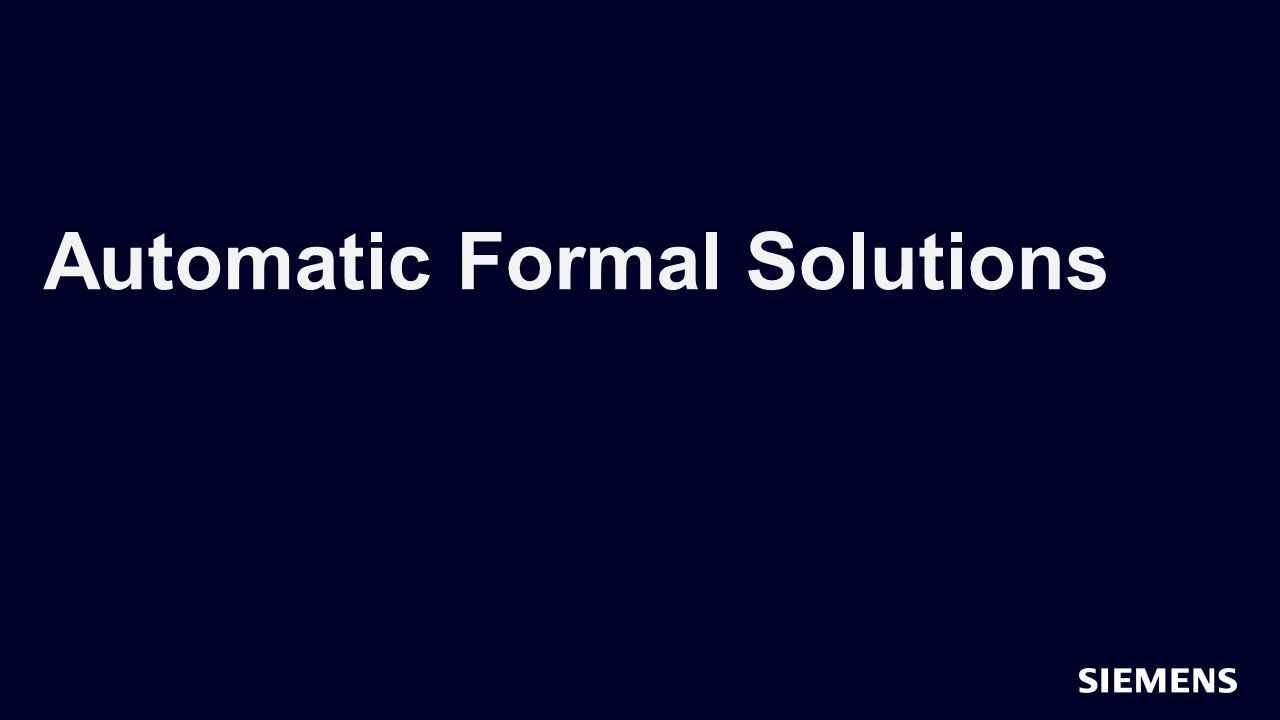
Automatic Formal Solutions
Track - Jun 05, 2015 by Mark Eslinger
After a brief introductory session outlining the general architecture of formal apps, in each subsequent session of this track will deep dive on a specific verification challenge and the corresponding formal application.